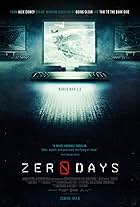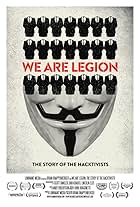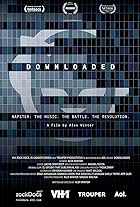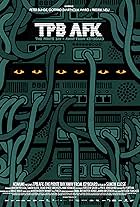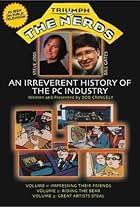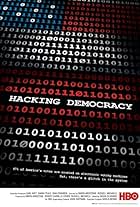Given that I have no knowledge about computers nor how they operate, I found
this film very informative with some basic descriptions of the free software and open source movement (which have some ideological differences... not that I
had ever heard of either). The film recounts the historical evolution (and
subsequent "revolution") through a series of interviews of key players in the development of the Linux operating systems for computers. If you know nothing about computers, do not assume that you will find this film uninteresting. In fact, although dense with information, the narrative is straight forward and almost all the information is explained for the ignorant like myself.
There are some relatively small problems with the film, mainly near its
conclusion. The finale of the film does not address the disparity between the commercial aspects of open source in the 90's and the long-term growth of the philosophy and practical applications. I assume that the Linux OS and the idea of open source did not lose steam after the dot-com stock bubble burst. Given I don't work around computers, besides for internet research and writing, I must make that assumption. Yet the film implies, for those of us who are ignorant, that perhaps it was derailed by the economic problems. But given the stable
foundation of the idea that the film describes, I cannot imagine that commercial problems would have a long-term affect.
The film ultimately is a nicely constructed lesson for those of us out of the loop. I recommend it to anyone who is interested in watching documentaries or
learning interesting kernels about our world. In terms of emotional involvement, the way the director juxtaposes the interviewees creates interesting moments of humor (there seems to be a jockeying for credit happening within the community of programmers). Where the credit belongs and how people have used this
ideology (which it is according to one of the founders of GNU-- see the movie, it will all be explained) to launch practical business operations creates a nice tension. Of course, there are some mentions of Microsoft's relationship, which is adversarial, to the Linux OS that can help the laymen get emotionally involved in the story by means of creating a hero (the Open Source community) and a
villain (Microsoft). Of course the Microsoft way of business (proprietary rights) is never really given voice with the exception involving an over-dramatized
reading of argumentative letter written in the 70's by Bill Gates (given I am originally from Seattle and some of my friends work for the giant, it seems a little one-sided).
Again, if you have no knowledge of computers, do not avoid this film for that reason alone. If you are on this site, you have an interest in films. You can at least appreciate it as a nicely constructed documentary (although not excellent) that will illuminate a part of recent history.
A small note: although there are some mannerisms of the interviewees that can be regarded as stereotypical regarding computer enthusiasts, they are some of the more well-spoken interviewees I have seen in film in awhile.






